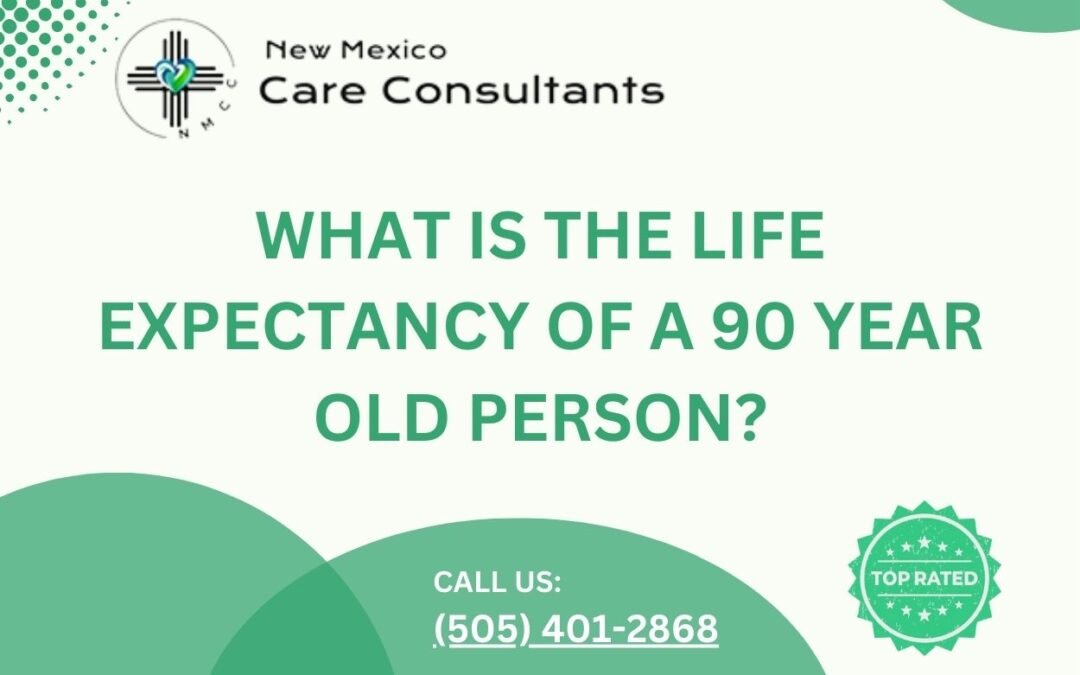In the grand tapestry of life, reaching the age of 90 is a remarkable feat, a testament to the resilience and richness of the human experience. Yet, as we celebrate this milestone, questions about life expectancy naturally arise. What does the journey ahead look like for those in their tenth decade? In Albuquerque, NM, where the desert meets the mountains, understanding life expectancy for 90-year-olds intertwines with the vibrant offerings of elder care programs.
The Numerical Perspective
From a statistical standpoint, the life expectancy of a 90-year-old can be challenging to pinpoint precisely. Various factors come into play, including gender, overall health, genetics, and lifestyle choices. While statistical averages may provide a general idea, the essence of an individual’s journey lies beyond mere numbers.
- Gender Disparities: Research suggests that women, on average, tend to outlive men. This gender disparity in life expectancy is influenced by biological, social, and behavioral factors. Therefore, a 90-year-old woman may have a different life expectancy compared to her male counterpart.
- Health and Lifestyle: The overall health of an individual significantly impacts life expectancy. Those who maintain a healthy lifestyle, including regular exercise, balanced nutrition, and mental well-being, may experience a more extended and fulfilling life. Conversely, underlying health conditions can affect the trajectory.
The Albuquerque Perspective: Elder Care Programs
In the enchanting landscape of Albuquerque, life expectancy for 90-year-olds finds its vibrancy in the various elder care programs designed to enhance the quality of life for seniors.
- Senior Living Communities: Albuquerque boasts a variety of senior living communities that offer a range of services, from independent living to assisted care. These communities provide a supportive environment where individuals can age gracefully, surrounded by like-minded peers.
- Home-Based Care Services: Recognizing the desire for many seniors to age in the comfort of their homes, Albuquerque offers comprehensive home-based care services. These programs encompass medical care, assistance with daily activities, and companionship, allowing individuals to maintain their independence.
- Cultural Enrichment Programs: The rich cultural tapestry of Albuquerque is interwoven into elder care programs, providing activities and events that celebrate diversity. From art classes to cultural outings, these programs aim to stimulate the mind and nurture social connections.
- Health and Wellness Initiatives: Albuquerque’s commitment to holistic well-being extends to elder care programs focused on health and wellness. Exercise classes, nutritional guidance, and mental health support contribute to a comprehensive approach to aging.
The Personal Landscape
Beyond the statistical averages and elder care programs lies the deeply personal landscape of each 90-year-old individual. Life expectancy becomes a dynamic journey shaped by relationships, personal fulfillment, and the pursuit of joy.
- Quality of Life: The focus shifts from mere survival to the quality of life. Elder care programs in Albuquerque, New Mexico align with this philosophy, emphasizing not just longevity but the enhancement of daily experiences.
- Social Connections: The importance of social connections cannot be overstated. Programs that foster a sense of community and belonging contribute significantly to the overall well-being of individuals in their 90s.
Conclusion
As we explore the life expectancy of a 90-year-old person, we venture into a realm where statistics meet the richness of individual narratives. In Albuquerque, NM, where the desert sun paints the landscape with warmth, elder care programs embrace the unique needs and aspirations of those in their tenth decade. Beyond the numbers, the journey becomes a celebration of resilience, community, and the vibrant colors that define a life well-lived.

